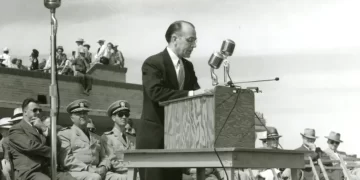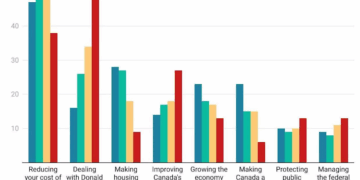Well, the biggest difference is that with absentee ballots, the voter specifically asks for a ballot. With universal mail-in balloting, ballots are mailed out en masse. Millions of people who would normally go to the polls vote by mail instead. No national election has ever been conducted this way. And there are very good reasons
To be concerned that one ever should. Reason #1: Bureaucratic incompetence. I don’t think I have to sell you on the idea that when the government bureaucracy takes on a big new project with little preparation, the results aren’t pretty. We’ve seen those results as it relates to mail-in balloting already.
Wisconsin was one of the first states to hold a primary in the coronavirus era. It saw an influx in mail-in votes as a result. Predictably, this led to serious snafus: Thousands of requested ballots were not sent; 1,600 ballots were found in a mail processing center the day
After the election; 23,000 votes were rejected due to missing signatures or other missing information. And those are the mistakes we know about in just one state and in one primary election, when fewer people than in the general election typically bother to cast a vote.
In Pennsylvania, where they delayed the date of their primary to get better prepared for the expected increase in mail-in balloting, they still couldn’t handle the volume. Half of Philadelphia’s votes were still uncounted a week after the election. In Virginia, more than half a million applications for ballots were mailed with incorrect information.
Some of the applications went to the wrong addresses, some went to dead voters, one even went to a pet. Under the best of circumstances, the bureaucracy struggles with mail-in balloting. Under less than the best of circumstances? That’s not a scenario we want to face.
Which brings us to reason #2 for concern: shoddy security. Here’s what the New York Times said about voting by mail in an article in 2012. Keep in mind, they were talking about traditional absentee balloting, not a mass-mailing of ballots.
“There is a bipartisan consensus that voting by mail, whatever its impact, is more easily abused than other forms.” No kidding. In May 2020, New Jersey conducted its first ever all-mail election. One month later, two elected officials were among four charged with criminal conduct involving mail-in ballots.
One operative confessed to stealing ballots, both completed and uncompleted, out of mailboxes. Other operatives compiled a database of signatures of prospective voters, and then used them to fill out ballots on behalf of their preferred candidates. And we only know about it because they got caught.
Election fraud only figures to get easier because of a new weapon in the cheater’s arsenal— ballot harvesting. This is the term for when a third party—usually a campaign worker or activist—goes to people’s homes and collects their ballots. With ballot harvesting, you don’t even have to put your ballot in the mailbox; vote harvesters
Will pick it up for you. The opportunities for mischief—say, pressuring people to vote a certain way, destroying ballots, or filling out ballots for those who didn’t bother to vote—are endless. Vote harvesting that targets senior citizens for their ballots even has its own name: “granny farming.” Reason #3 to be concerned:
The likelihood of long delays in determining final results. Americans are used to knowing who won and who lost within hours of the polls closing on Election Day. Of course, some close races take longer to sort out. But the longer it takes, the less legitimate an election seems.
That is exactly what happened in the 2000 presidential election—Bush v. Gore. Then, the dispute was focused on a single state: Florida. It was finally settled by the Supreme Court over a month later. If we have a national election that relies heavily on mail-in voting, we’re almost certain
To see a significant delay before we get the final results. From the post office to the vote counters, the system is just not set up for it. In a close contest involving massive mail-in voting, lawsuits disputing the results are inevitable. This could delay final results even longer. And instead of involving a single
State, it’s likely to involve multiple states. This is a recipe for civil unrest as frustration and fear of a stolen election grips voters. Bureaucratic incompetence. Shoddy security. Long delays. These are just some of the concerns any reasonable person should have over universal mail-in balloting. What’s the solution?
Simple. If you need to vote absentee, request a ballot. Otherwise, vote like you always have: in person. I’m Eric Eggers, investigative reporter for the Government Accountability Institute, for Prager University.

































 Reaction & Commentary
Reaction & Commentary











